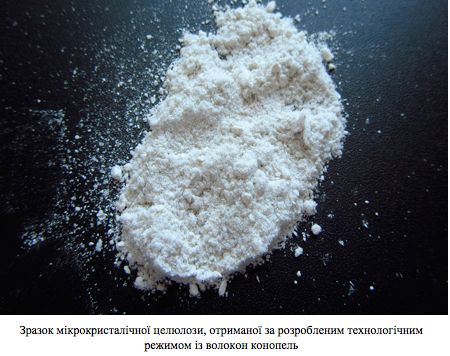Development and application of new environmentally friendly technologies for producing of nanocellulose, products of chemical and pharmaceutical industries from non-woody plant materials
The influence of the basic technological parameters of traditional and organosolvent methods of cooking cellulose from stalks and fibers of non-wood plant material for its quality were investigated. The effect of alkaline extraction in quality microcrystalline cellulose from hemp fibers was determinated. The process of obtaining organosolvent hemp pulp was investigated. Depending quality parameters of microcrystalline cellulose to major technological factors was established. The technology of obtaining microcrystalline cellulose from hemp and flax fibers was developed. The prescription of medicinal pills with using in their composition microcrystalline cellulose from non-wood plant material was developed.
The influence of the main technological parameters for processing of nanocellulose performance were investigated. The dependences quality indicators of nanocellulose from process parameters were investigated. It is shown that the mechanical grinding, acid hydrolysis and sonication cellulose allows to obtain films, which characterized by opacity to 78% in the visible spectral range, high Young's modulus to 8.8 GPa and tensile strength of 88 MPa.
The nanocomposite materials based on nanocellulose was obtained. Nanostructured cellulose characteristics studied by X-ray and thermal analysis, infrared spectroscopy and TEM, dynamic light scattering. The normative and technical documents for the production of microcrystalline cellulose and nanocellulose fкщь non-wood plant materials were developed.

| Долучення | Розмір |
|---|---|
| 893.71 КБ |




